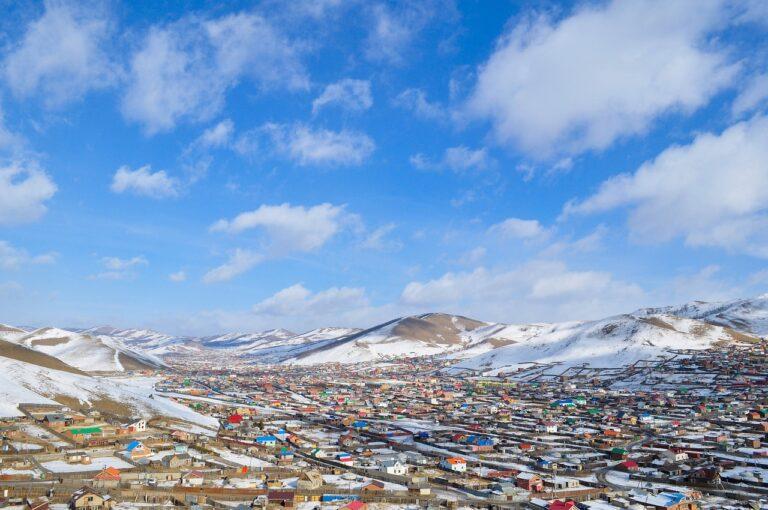Like Mongolia, the EU has cryospheric regions like glaciers and permafrost (e.g. Scandinavia and the Alps) which are particularly sensitive to a warming climate. Many nomadic herders in rural Mongolia are migrating towards urban areas, primarily Ulaanbaatar where approximately half of the country’s population now lives. Permafrost thaw also increases the likelihood of pandemics and natural disasters alongside air pollution, which is already a significant issue in Mongolia, especially in Ulaanbaatar.
Mongolia, a resource-rich democracy of 3.3 million people landlocked between Russia and China, has seen exponential development since 1991, in large part due to its rich mining sector. Increasingly threatened by climate change and extreme weather events, the current Mongolian government’s policy Vision 2050 envisions a transition to a greener economy less dependent on resource extraction, aligned with the UN’s Sustainable Development Goals and the EU’s Global Gateway. The policy touches on a range of diverse areas, from reducing urban pollution to disaster management to sustainable energy production, to which the EU is happy to lend its own expertise to smooth the transition. In order to deepen cooperation with the EU, Mongolia aims to enhance the 2019 Partnership and Cooperation Agreement, which would significantly upgrade the already strong partnership and cooperation between Mongolia and the EU.
Mongolia, as an increasingly important EU partner in the region, presents great promise for climate change cooperation, given its vast solar power potential and deep-rooted respect for nature. Mongolia’s Vision 2050 offers a unique opportunity for the EU to expand its existing engagement in Mongolia, especially in improving Mongolia’s business environment to promote and support green energy projects.
More information on EU-Mongolia Climate Change Cooperation will follow in due course as EIAS is working on a related research project.
Photo credits: Pixabay

